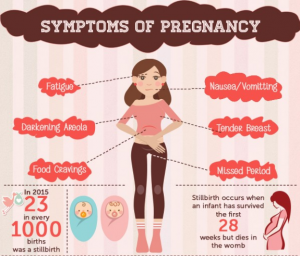What is Gestational Age?

Pregnancy is a remarkable phase of life, marked by wonder, anticipation, and the intricate process of nurturing a new life. As one traverses this unique journey, understanding the gestational period becomes essential. This period, which can be determined using tools like the prenatal calculator, offers a window into the baby’s development and the changes the mother undergoes.
This blog demystifies the pregnancy journey and delves deep into the nuances of the gestational period, from its significance in prenatal care to the tools like the pregnancy term calculator that aid in tracking pregnancy progression. We also explore the various milestones, potential complications, and differentiation between gestational and foetal age to give a comprehensive overview of the gestational period.
What is gestation?
Gestation is the intricate process during which an embryo transforms into a foetus, developing and maturing inside the mother’s womb until birth. Spanning approximately 40 weeks, this period is segmented into three pregnancy trimesters, each with developmental milestones and physiological adaptations.
The first trimester witnesses the foundational development of vital organs and systems. As the pregnancy progresses into the second trimester, the foetus undergoes rapid growth, with organs maturing and beginning to function. By the third trimester, the foetus prepares for life outside the womb, refining its respiratory and neurological systems.
To calculate pregnancy weeks, healthcare professionals conventionally use the first day of the last menstrual period (LMP) as a reference point. Although this method doesn’t determine the precise day of conception, it offers a consistent framework to gauge the pregnancy’s progression.
What is gestational age?
Gestational age i a measure used to determine the baby’s development and is calculated from the first day of the mother’s LMP. It plays a significant role in prenatal care, helping healthcare professionals make informed decisions regarding the baby’s health and delivery. For instance, babies born before completing 37 weeks are considered premature and might require specialised care.
How to calculate gestational age?
Accurately determining gestational age is pivotal for monitoring the development of the foetus and ensuring the mother’s well-being. This provides a roadmap for medical professionals and expectant mothers, guiding them through the various stages of pregnancy. There are several methods to ascertain gestational age, which can be broadly categorised into clinical methods and calculator tools.
Clinical Methods
- Last Menstrual Period (LMP): One of the most traditional methods, healthcare professionals often use the date of the LMP to estimate gestational age. This method provides a foundational estimate but may not always pinpoint the exact gestational week.
- Ultrasound: Ultrasound is an incredibly useful diagnostic method in obstetrics, as it visually represents the foetus. When conducted in the first trimester, ultrasound allows for the precise determination of gestational age.
There are two types of ultrasounds:
-
- Transvaginal Ultrasound: Typically done in the early stages of pregnancy.
- Transabdominal Ultrasound: Used when the foetus has grown larger, this procedure involves sensors attached to the abdominal wall.
3. Physical Examination: Though less accurate than other methods, a physical examination can give an estimate by measuring the expanding uterus. This method involves assessing the size of the uterus and correlating it with the gestational age.
- Foetal Movement Detection: For those who might not recall their LMP, detecting foetal movement can provide clues. For first-time mothers, movements typically start around 18-20 weeks and can be earlier, about 16-18 weeks, for subsequent pregnancies.
What are due date calculators?
The due date calculator tool allows expectant mothers to predict their expected delivery date. By inputting the date of the LMP, the calculator provides an estimated delivery date, helping mothers calculate pregnancy durations.
The calculators also come with a pregnancy calculator week-by-week feature that can be invaluable for a more detailed breakdown. It offers insights into the baby’s development at each stage, ensuring mothers are well-informed and prepared.
While clinical methods provide hands-on and direct assessments, gestational age calculators offer a convenient and quick way to estimate gestational age. Both approaches, when used complementarily, can provide a comprehensive understanding of the pregnancy’s progression.
What is the difference between gestational age and foetal age?
While the gestational age refers to the duration of the pregnancy calculated from the first day of the LMP, the foetal age represents the actual age of the foetus. The foetal age is typically approximately two weeks less than the gestational age.
Gestational age is commonly used in medical settings due to its consistency. However, the foetal age provides a more precise measure of the foetus’s actual developmental stage.
What are the complications during gestation?
Pregnancy is a remarkable experience that can bring great joy, but it’s not without its challenges. It’s crucial to be diligent in monitoring and caring for expectant mothers and their babies, especially if complications arise. Here are some of the common complications that may occur during gestation:
- Gestational Diabetes: This is a form of diabetes that can develop during gestation and affect both the mother’s and baby’s health. Proper management ensures a healthy pregnancy and baby.
- Gestational Hypertension: Characterised by elevated blood pressure during pregnancy, this condition can escalate to preeclampsia, a severe complication that can endanger both the mother and the baby.
- Preeclampsia: A complication characterised by high blood pressure and potential organ damage, often the liver and kidneys.
- Eclampsia: A severe extension of preeclampsia, leading to seizures during pregnancy.
Understanding the nuances of the gestational period, from using pregnancy due date calculators to recognising potential complications, can ensure a healthier and safer pregnancy journey. One must remember that regular check-ups and consultations with healthcare professionals are invaluable when navigating this path.
Book your specialised Pregnancy Package tests with Dr Lal PathLabs after consulting your doctor and take a proactive step towards a healthy pregnancy!
FAQs
1. What is the normal period of gestation?
The typical duration of a pregnancy is around 40 weeks, or 280 days, starting from the initial day of the last period, known as LMP, up to the expected date of birth.
2. Which period is called the gestation period?
The period of development from the moment of conception until childbirth is known as the gestation period. It is determined starting from the first day of the woman’s most recent menstrual cycle.














